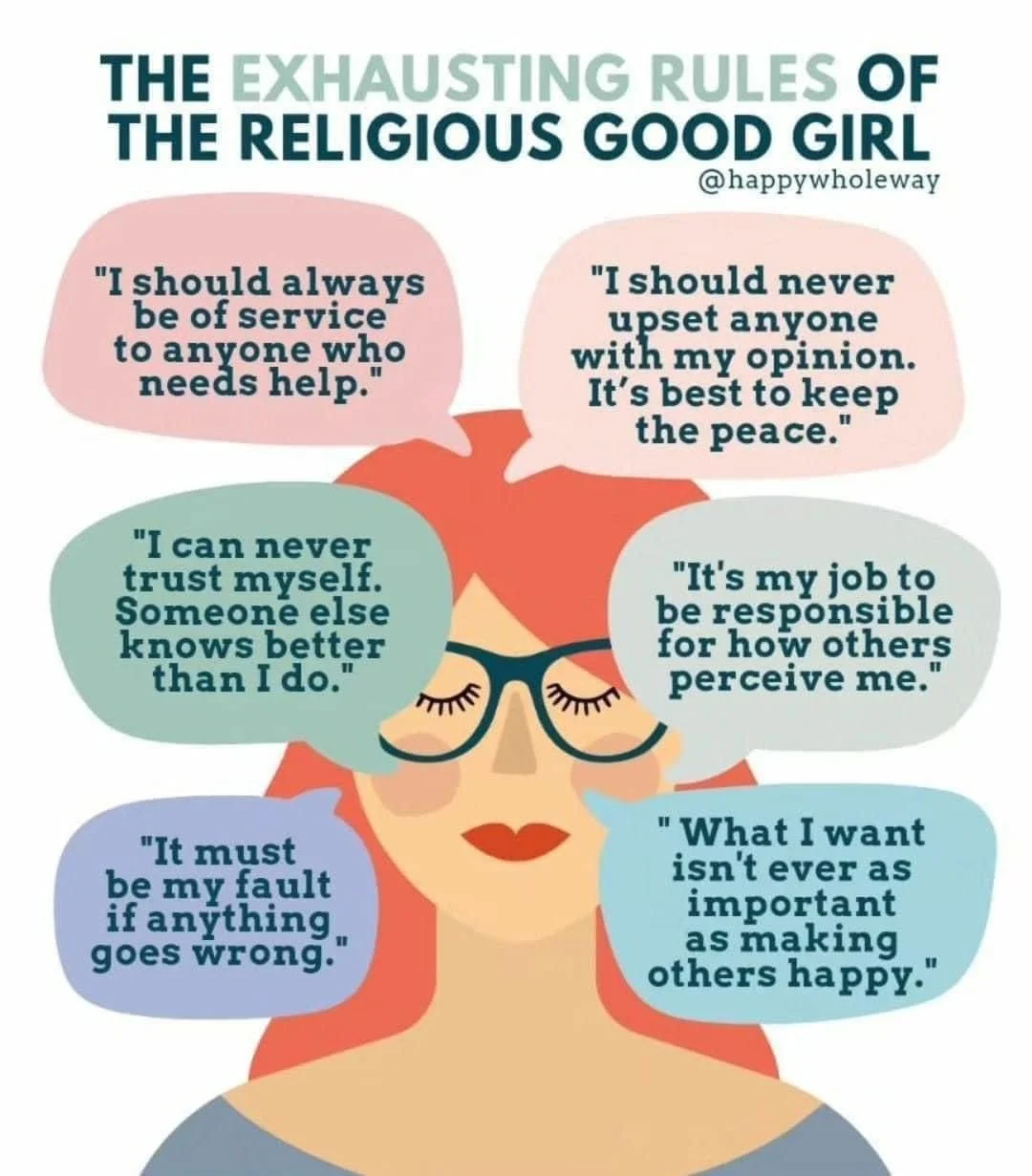The Exhausting Rules of the “Religious Good Girl”
The Exhausting Rules of the “Religious Good Girl”
For many women raised in rigid or authoritarian faith settings, the message was clear: your worth comes from pleasing others, keeping the peace, and sacrificing yourself.
These “rules” often sound holy, but they can actually strip away self-worth and identity. They teach women to distrust themselves, silence their voices, and take responsibility for things that were never theirs to carry.
Some of these toxic internalized beliefs include:
“I should always be of service to anyone who needs help.”
“I should never upset anyone with my opinion. It’s best to keep the peace.”
“I can never trust myself. Someone else knows better than I do.”
“It must be my fault if anything goes wrong.”
“It’s my job to be responsible for how others perceive me.”
“What I want isn’t as important as making others happy.”
While these beliefs may be taught under the guise of being “godly” or “selfless,” they often lead to burnout, anxiety, depression, and deep disconnection from one’s authentic self.
Why This Matters for Mental Health
When a person lives by these exhausting rules, they may feel:
Constant guilt for saying “no”
Fear of disappointing others
Anxiety about conflict or rejection
Shame for wanting or needing anything for themselves
Emotional exhaustion from over-functioning
This is religious trauma in action—it’s not just about beliefs, it’s about how those beliefs shape your identity, choices, and relationships.
The Path to Healing
Healing means learning to:
Set boundaries without guilt
Trust your own inner wisdom
Allow yourself to want and need things
Believe that your worth is not defined by service, silence, or perfection
See that love—including God’s love—doesn’t require self-erasure
If you find yourself exhausted by these “rules,” know this: you are not alone. And you don’t have to keep carrying them. Therapy can help you sort through the layers of religious messaging, reclaim your voice, and build a healthier relationship with yourself and with your faith.
📩 If this resonates with you, reach out today at jessica@restorationcounselingdsm.com


